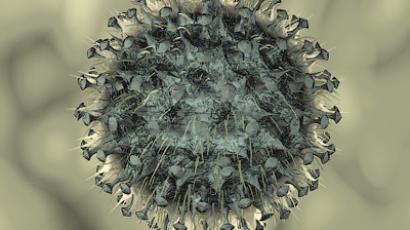‘Hard to track, hard to stop’: Unusual bird flu strain kills 4 people in China

The samples taken from a Chinese man, who passed away in hospital in March, tested positive for H7N9, bringing the death toll of the new strain of bird flu to four people. Scientists warn the virus spreads silently and could be harder to track than H5N1.
A 38-year-old cook fell ill early last month in the Eastern
province of Jiangsu, where five other cases of the disease were
discovered. The man died in hospital in Hangzhou city on March
27.
There was another case of H7N9 found on Wednesday, with the second
patient of 67 years old is currently undergoing treatment also in
Hangzhou.
Local Xinhua news agency reports that no connection between the two
cases had been discovered and nobody, who was in close contact with
either patient had developed any flu-like symptoms.
Human infection cases with the rare bird flu have also been
registered in Zhejiang Province, where a man died on April 3, and
in Shanghai, where the virus took two lives in March, and Anhui
province, where a first case, a 35-year-old woman, was registered.
Chinese Xinhua reports very few sick people have been detected,
relatively little research has been done on the virus previously
known to have infected only birds.
The scientists from research institutes around the world have
warned Wednesday that a new strain of bird flu can generate no
noticeable symptoms in birds while seriously harming humans.

According to China's National Health and Family Planning Commission, the men who died in Shanghai feel ill with coughs and fevers before developing pneumonia and breathing problems.
However, after taking a first look at the genetics of the H7N9 virus, scientists have come up with a warning: the new virus could be harder to track than H5N1 which started spreading in 2003 and has killed 360 people worldwide since then, according to the WHO.
Chinese authorities are working in contact with the World Health Organization trying to find the source of the human infections, but they could face a challenge in that and then stopping the spread as there is no visible outbreak of dying chickens or birds.
"We still don't know the mode of transmission or host (of the
virus)," Gregory Hartl, WHO spokesman, told Reuters.
"Those are the two most important pieces of information we would need. In order to control it, we need to know where it is coming from." Chinese authorities dismissed speculation on the Internet that the H7N9 outbreak may be related to more than 16,000 pig carcasses found dumped in rivers around Shanghai, with the animal corpses testing negative for the disease.
"In that sense, if this continues to spread throughout China and beyond China, it would be an even bigger problem than with H5N1 in some sense, because with H5N1 you can see evidence of poultry dying, but here you can see this would be more or less a silent virus in poultry species that will occasionally infect humans," AP quoted the University of Hong Kong microbiologist Malik Peiris.
Scientists have so far said there are no signs of transmission of the H7N9 virus between any of the victims or people they have come into close contact with.
However, they still monitor bird flu viruses closely, fearing they may mutate and become easier to spread among humans, possibly sparking a pandemic.
There are no vaccines against the H7N9 bird flu either in China or abroad, but Peiris said that existing anti-flu drugs are likely to work against the H7N9 strain.














